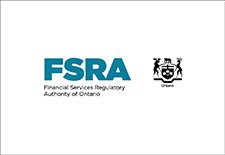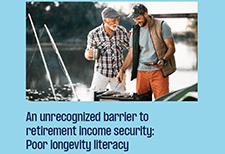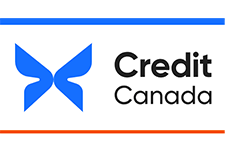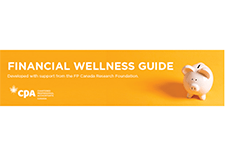Discover financial empowerment resources
Discover financial empowerment resources
Safe and Secure is an online book that helps you imagine, plan, and take action toward building a good and purposeful life, and a secure future, for your family member with a disability. First published in 1996, Safe and Secure was created to help families imagine and plan...

The tools provided by Autorité des marchés financiers can help guide financial planning for you and your...

No matter where you are in your financial journey—whether you’re beginning your career, saving for your children’s education, planning for retirement, or setting up a legacy for your loved ones—working with a qualified Financial Planner to create a financial plan can significantly help in...

This glossary of investing terms put together by the Canadian Investment Regulatory Organization (CIRO) may be useful for new and seasoned investors...

This research from early 2024 focuses on the perspectives of consumers as related to the individuals providing them with financial planning and/or financial advisory services. The research consisted of a survey of over 1,000 Ontario consumers, and two focus group discussions to supplement the...

The Financial Services Regulatory Authority of Ontario (FSRA) is responsible for protecting the rights of consumers in Ontario by promoting high standards of business conduct and transparency within the financial services they regulate. Financial services professionals are not required to use...

To give you confidence when seeking advice from anyone using a Financial Planner or Financial Advisor, or similar, title in Ontario, FSRA requires these individuals meet a minimum standard of education and be supervised by a FSRA-approved credentialing body. Use this website to: Check...

The Nova Scotia Securities Commission has investor education videos covering a range of topics from recognizing frauds and scams to learning more about investing and compound interest. Access this resource to see them...

Like so many other Ontarians, you may want to work with a financial professional to plan for various financial goals. Knowing who to talk to when seeking financial planning or advisory services can be hard. To give you confidence when seeking advice from anyone using a Financial Planner or...

Savings are one of the strongest predictors of household financial resilience and well-being, yet Canadian households struggle to save due to an array of economic, behavioural and institutional factors. The Financial Consumer Agency of Canada (FCAC) created the National Financial Literacy...

The Office of the Investor at the Canadian Investment Regulatory Organization (CIRO) engaged with Innovative Research Group to conduct the organization’s first national investor survey. The objective of this general population (and particularly investors) survey research is to help CIRO better...

FCAC’s new webpage, Choosing a financial institution, will help consumers determine which type of financial institution best meets their needs. The topics covered include: Identifying the financial products and services you need Deciding if you want all your products and services with one...

If you’re saving for a goal in the near future and you’ll need to access the money within a year or two, chances are that’s a short-term goal. Whether it’s for a wedding, a dream vacation, or a new appliance for your home, if it’s something you’re unable to pay for right away then...

The benefits of spring cleaning can extend beyond your home. Your investment portfolio needs regular maintenance to maximize its performance. A good habit is to regularly review your investment portfolio throughout the year to make sure it aligns with your financial needs. Click on "Access...

Parents and caregivers worry about who will be there when they are no longer able to care for their loved ones with a disability. It is a question that weighs heavy on families. Family members, or parents, want to know what options will be available and who will be making decisions for their loved...

Longevity literacy is an understanding of how long people tend to live upon reaching retirement age. It is particularly important since retirement income security requires planning, saving, and preparing for a period that is uncertain in length. This matters because longevity literacy is...

Practically everyone today seems to have some form of debt. Whether that’s from student loans or credit cards, debt is a huge issue for Canadians—one that we could all use a little help to get out of. To gain some relief, people all over the world have turned to side hustles and the “gig...

Have you ever made an impulsive purchase? Do you struggle to stick to a diet or exercise routine? What’s the longest you have gone in keeping your New Year’s resolutions? The field of behavioural insights tells us that we have an innate desire to live for today at the expense of tomorrow....

This study examined the financial lives of retired Canadians and those approaching retirement. While most retired Canadians said they are in a strong financial position, a concerning 15% of retirees rated their financial situation as poor. Almost one third of retirees reported their monthly...

Tax-free savings accounts (TFSAs) are designed to help Canadians save more. This comprehensive resource page by the Ontario Securities Commission will help you learn more about TFSAs, what the annual contribution limits are, how to make transfers between TFSAs and the penalties for breaking...

This Financial Resilience Institute report, authored by Eloise Duncan and commissioned by FP Canada and the Institut québécois de planification financière (IQPF) is being published for everyone with a stake in the financial resilience and well-being of Canadians. This study, leveraging the...

CPA Canada has a selection of money management worksheets you can use with your clients. Goal Setting Set SMART goals that are specific, measurable, action-oriented, realistic, time-framed. Financial Fitness Self-Assessment Determine how well you are currently managing your finances. Values...

CPA Canada developed the Financial Wellness Guide to help you understand money basics. Complete the online questionnaire to get straightforward tools and information, based on your financial situation, that will help you with your financial...

A comprehensive learning program that provides basic information and tools to help adults manage their personal finances and gain the confidence they need to make better financial decisions. Learn more about the program and how to use the learning...

There are many reasons why someone might be struggling financially. Job loss, health challenges, or a sudden financial emergency could cause hardship, preventing someone from staying afloat. In times like these, it’s not uncommon for someone to ask for help from friends or family. Before agreeing...

